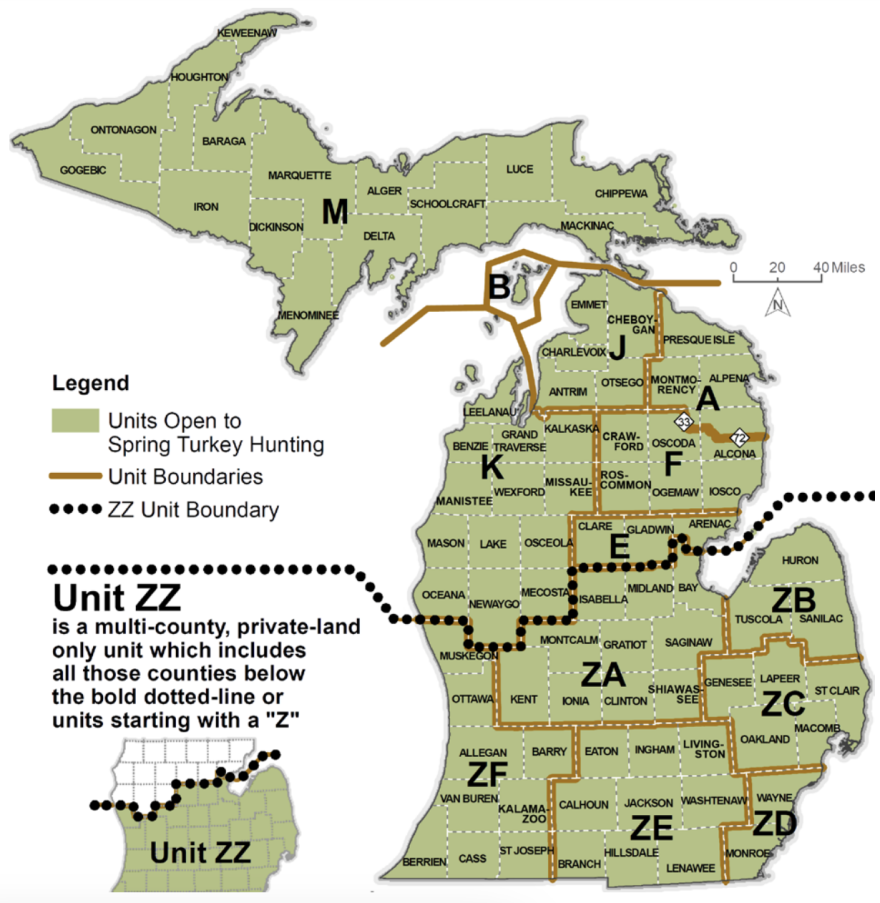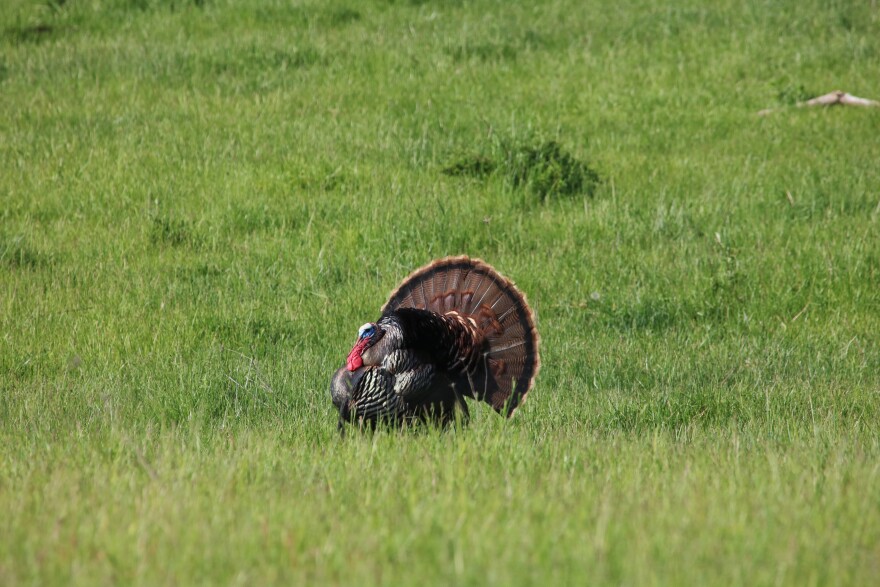Hunters have until Feb. 1 to apply for spring turkey hunting licenses.
Hunters are entered into a lottery for licenses in different parts of the state, with randomly-selected winners announced in March.

But why is most of Michigan’s turkey hunting in spring instead of fall, when more people tend to eat the birds?
Adam Bump is the Upland Game Bird Specialist for Michigan’s Department of Natural Resources. He says the answer is simple.
“To hear a turkey gobble, and to call to it and get it to respond to your gobbling, and to be able to watch it do its strutting and display is something that hunters really look for and really enjoy. And they don't exhibit that kind of behavior in the fall,” said Bump.
Spring is mating season, he says, and males are more easily distinguished from females because of their aggressive behavior, bright colors and elaborate breeding displays.
That’s important because spring hunters can only target bearded turkeys, which are usually males. Bump says the DNR times spring turkey season so that the hunt begins after turkeys have bred. Plus, he says one mature male turkey mates with multiple females.
“We kind of have a double action system where we’re not taking the females that are laying eggs and raising young,” Bump said. “We’re trying not to interrupt the breeding processes.”
He says having a spring turkey season also helps spread hunting opportunities throughout the year. (There is turkey hunting in the fall, but Bump says the most turkey hunting happens in spring.)
Bump says turkey populations in Michigan are stable, and hunting regulations haven’t changed much this year. But scientists are keeping a close eye on turkeys throughout the state.
“What we are seeing in almost every eastern state, and actually some of the western states, is populations starting to decline,” said Bump. “There is no clear, definitive explanation as to why populations are declining.
He says research is underway in other states to determine a cause, and research in Michigan is looking into ways to prevent the decline from happening here.
But those who aren’t hunting might still encounter the birds. Bump says complaints about turkeys come in every season.
“It’s less about the overall number of turkeys and more about turkeys being in places that maybe they should be, doing things that maybe they shouldn’t,” said Bump.
He says common complaints include turkeys knocking down bird feeders or acting aggressive.
“They might chase after you, try to peck you or flap at you,” said Bump. “It’s a little disconcerting because they are a fairly large bird.”
Bump says these kinds of issues are harder to resolve with hunting because they’re often localized in urban areas. But there are other solutions.
“That could be trying to get your neighbors to not feed birds for a couple weeks … during the spring period where turkeys tend to be territorial and defensive,” he said. “[We’re] trying to avoid them getting used to people and food.”
Spring turkey hunting season begins in late April and runs through early June, depending on the area of the state.
If hunters aren't selected for a license from the lottery on March 11, they can apply for leftover licenses on a first-come, first-served basis.


